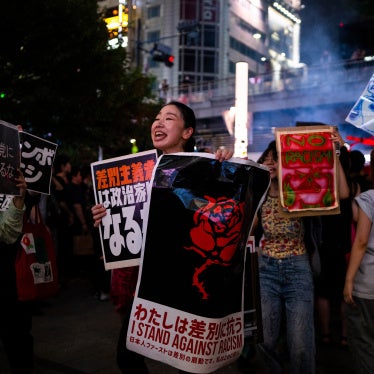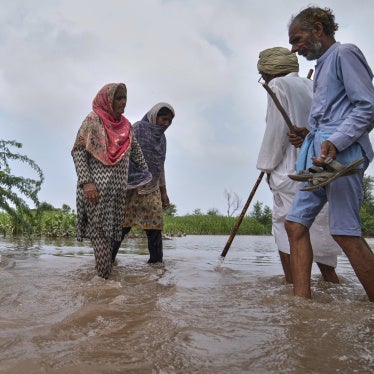(Lahore, Pakistan) -- Last Thursday, Pakistan's simmering sectarian war came to the strategically important North West Frontier Province bordering Afghanistan. At least 31 people were killed and scores injured after a suicide bomber attacked a religious procession in the town of Hangu.
The explosion ripped through a congregation of Shia Muslims marking the Ashura festival, sparking a riot. The Pakistan Army, already overstretched by the rebellion in the neighboring tribal areas, another in the western border province of Balochistan and the earthquake in Kashmir, sent in troops and imposed a curfew.
Last May, 18 people were killed and dozens injured in a suicide bombing at a shrine on the outskirts of the capital Islamabad, where hundreds of Shiites had gathered to celebrate a religious festival.
Estimates suggest that at least 4,000 people, largely from the minority Shia branch of Islam, have died as a result of sectarian hostility since 1980. But if things were bad earlier, they are now abysmal.
Sectarian violence risen sharply rise since General Pervez Musharraf took power in 1999. President Musharraf's government has followed what can only be described as a deliberate policy of strengthening sectarian militant organizations while purporting to pursue "enlightened moderation."
Sunni extremists from militant organizations such as Sipah-e-Sahaba Pakistan, Lashkar-e-Tayyaba and Jaish Mohammad were nurtured and trained by the Pakistani military in the 1980's and 1990's to wage jihad in Kashmir and Afghanistan and to bolster the Taliban. Deprived of external distractions, these groups have started targeting Shiite Muslims.
Meanwhile, little effort has been made to bring those responsible for acts of sectarian violence to justice or to provide protection for the targets or their families.
A muzzled, underfunded and often partisan judiciary is unable to hold those responsible for sectarian terrorism accountable. The police, woefully lacking in investigative training and capacity, looks on callously as victims of sectarian terror run seeking protection.
While Musharraf would have the West believe that the Pakistani military is the only institution that can prevent an Islamist takeover of Islamabad, in fact it is the Islamist-military alliance that stands in the way of genuine liberal democracy and promotes extremism in Pakistan.
Half-hearted measures taken under international pressure and for international consumption, such as the banning of sectarian groups and curriculum reform in religious schools, have had little impact. Banned groups simply rename themselves and continue to operate with impunity.
President Musharraf's drive against militant Islamism is geared toward battling immediate opponents of the government at the cost of dealing with the real problem. While he cracks down on suicide bombers, the military–Islamist alliance that creates the suicide bombers is not only left in place but actively protected. This is a profoundly dangerous policy for long-term regional and global security and a death warrant for many citizens of Pakistan.
The Islamists are being protected and nurtured for use another day. In the meantime, bereft of their playgrounds in Afghanistan and Kashmir, they are focusing inwards.
In exchange for an alliance in the "war on terror," Musharraf's patrons in the West ignore the terror within Pakistan. Given the clear linkages between sectarian groups in Pakistan, Musharraf's Islamist allies in Pakistan's parliament and Taliban and al Qaeda elements, this is a profoundly flawed approach.
It is time for the international community to take note. When President George W. Bush visits Pakistan in March, he will have an opportunity to do just that. Telling Musharraf to replace rhetoric with action before a nuclear-armed Pakistan slips into a sectarian bloodbath would be a good start.
Ali Dayan Hasan is South Asia Researcher for Human Rights Watch.








